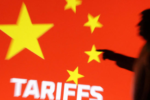In a significant legal development, the U.S. Court of Appeals for the Fourth Circuit has temporarily blocked a controversial ruling by a North Carolina state court that sought to throw out thousands of ballots cast in a 2024 North Carolina Supreme Court race. The case has become a flashpoint in the ongoing national debate over election integrity and judicial independence.
The appellate court’s temporary stay, issued late April 23, 2025, effectively preserves the certified results of the closely contested election while litigation continues. At the heart of the dispute is a Republican-backed lawsuit alleging that procedural irregularities and administrative errors invalidated a portion of the vote in favor of Democratic incumbent Justice Allison Riggs.
The lower court had ruled in favor of the plaintiffs, declaring certain mail-in ballots and early votes “improperly counted” under state law. That decision sparked widespread concern among civil rights groups and legal experts who said it undermined voter confidence and risked setting a dangerous precedent.
H2: Election Integrity vs. Voter Disenfranchisement
The case revolves around allegations of ballot mishandling during the 2024 midterm elections, particularly in Wake and Mecklenburg counties. Republican plaintiffs argued that election officials failed to verify some absentee ballots and accepted others past the statutory deadline, allegedly violating North Carolina’s election statutes.
Supporters of the lawsuit claim the lower court’s ruling upholds the law and ensures transparency, particularly in judicial races where decisions can influence state policy for decades.
Critics, however, accuse the plaintiffs of attempting to disenfranchise thousands of lawful voters after the fact. The NAACP and other advocacy organizations immediately condemned the ruling, calling it an “assault on democratic norms.”
“Throwing out votes already counted and certified is a direct threat to free and fair elections,” said Deborah Maxwell, President of the North Carolina NAACP. “This lawsuit is not about law—it’s about power.”
Legal analysts noted that while election challenges are not uncommon, retroactively discarding votes in a certified race is a rare and highly controversial move.
H2: Federal Judges Highlight Constitutional Concerns
In issuing the temporary stay, the federal appeals panel expressed serious concerns about due process and equal protection under the U.S. Constitution. The court noted that invalidating ballots after voters have lawfully cast them raises questions about the sanctity of the electoral process.
The judges emphasized that the case touches on federal constitutional rights, warranting a more thorough review. Their order halts any effort to alter the election outcome until the court can fully consider the merits of the appeal, which is expected to be fast-tracked given the public interest involved.
“This case presents a serious risk of irreparable harm,” wrote the panel in its brief opinion. “Enjoining the enforcement of the lower court’s order is necessary to preserve the status quo and protect the fundamental rights at issue.”
H2: Broader Political Ramifications
The case has quickly become a nationally watched legal battle, drawing attention from both political parties ahead of the 2024 presidential election. With growing distrust in election systems following the 2020 cycle, both Democrats and Republicans are using the case to rally their bases.
Former President Donald Trump praised the original ruling and called on other states to follow North Carolina’s lead. Meanwhile, President Joe Biden’s administration has expressed concern over what it sees as judicial overreach threatening democratic norms.
State officials, including North Carolina’s Democratic Attorney General Josh Stein, warned that attempts to overturn certified elections risk eroding public trust in democratic institutions.
“Our democracy depends on the certainty that every lawful vote will be counted and upheld,” Stein said. “We cannot allow political interests to dictate the results of our elections.”
H2: What Comes Next in the Legal Fight
With the Fourth Circuit’s stay in place, the underlying litigation will proceed on an accelerated schedule. Oral arguments are expected to begin in early May, with a decision likely to follow shortly thereafter.
Observers say the court’s final ruling could have far-reaching implications for how post-election challenges are handled in the future. A ruling in favor of invalidating the votes could embolden similar challenges in other battleground states, especially in close races. Conversely, a strong ruling upholding voter rights could reinforce electoral stability ahead of November’s elections.
Voter rights organizations are preparing to mobilize, both in court and in the public sphere, to defend what they see as a fundamental principle: that votes once lawfully cast and counted must stand.
Conclusion: A Pivotal Moment for Election Law
The U.S. Court of Appeals’ decision to block North Carolina’s ruling underscores the delicate balance between election security and democratic access. While the legal battle is far from over, the case already serves as a powerful example of how judicial decisions can influence not just election outcomes but the public’s faith in democracy itself.
For ongoing updates on the case, visit SCOTUSblog’s election law coverage.







